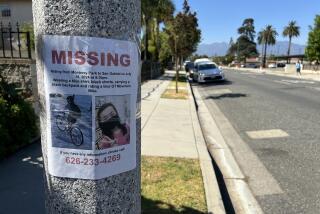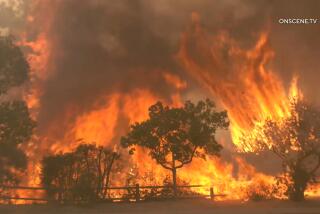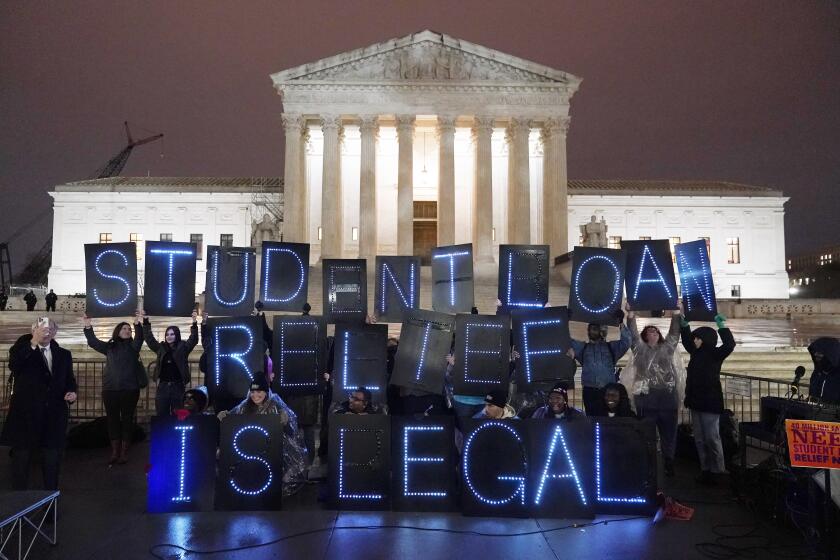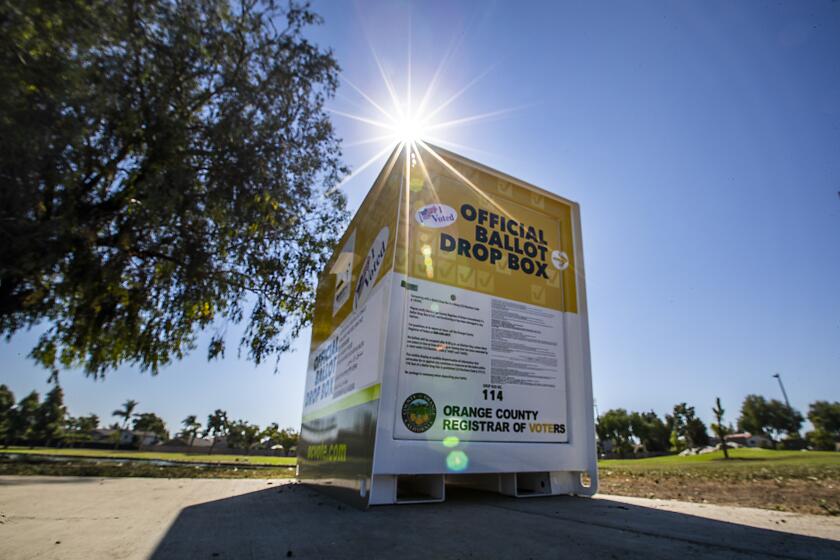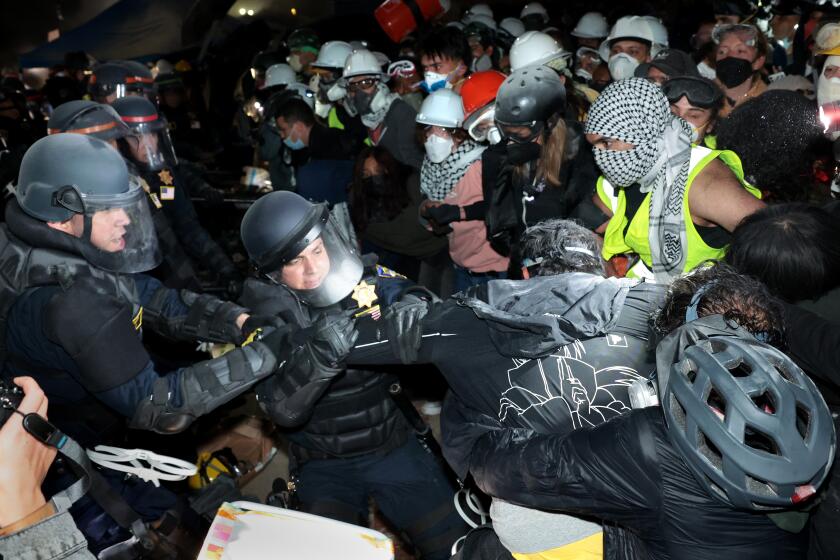Struggling Charter School Faces Pivotal Board Vote
Renaissance Academy, a charter high school that has struggled with finding a suitable location and other issues throughout its year-and-a-half existence, faces a Los Angeles Board of Education vote today that could spell the end for the small Westside school.
If board members vote to revoke its charter, as the Los Angeles Unified School District staff has recommended, Renaissance could be required to close by month’s end. Late last week, however, the district and its charter school office were trying to find a stopgap way to house the 175-student school -- now temporarily located at a Culver City recreation center -- and to resolve district concerns about the school’s management.
The goal is to delay the charter revocation long enough to allow students to finish the school year; the district may let Renaissance use a closed elementary campus near Los Angeles International Airport until then.
“In my view, we have to do what is in the best interest of the kids,” said board President Marlene Canter, whose district includes all but one of the four sites Renaissance has used during its tumultuous existence.
Renaissance has “so many problems that impact the ability for the kids to remain successful,” Canter said. She noted that its students posted impressive scores on state standardized tests last spring, but said she is concerned their learning will suffer if problems are not resolved.
Principal Paul McGlothlin, a former Palisades High teacher, founded the school to offer a college-prep curriculum with a heavy emphasis on the arts.
The school encountered rocky times from the start. In September 2004, it opened in a rented commercial building in Pacific Palisades. Originally, Renaissance asked the school district to provide space at Palisades High or elsewhere on the Westside, but the district said it had no suitable facilities. Renaissance sued the district, and the matter is awaiting mediation.
But the school quickly ran into trouble. Occupancy limits in the commercial building forced Renaissance to hold some classes in a nearby park, a library and students’ homes. The school did battle with the city over building and safety issues, and got into a quarrel with its landlord that resulted in the school’s eviction.
Over the summer, Renaissance leaders found another site on South Bundy Drive in West L.A. and began renovations. But they did not disclose that the site was to be used for a school, the landlord and city building officials said; nor did they apply for the needed zoning change or use permit -- a lengthy process -- until classes were set to open in the fall. The city has not yet approved the site, so the school cannot put students there.
The ensuing scramble for another facility delayed the start of the school year. The school briefly used a church for classes, but the space was not large enough and not approved for school use. In October, the school tried to hold classes at the Bundy site, only to be shut down by city officials, who listed several hazards they said made it “extremely unsuitable for a school.” The landlord balked and moved to cancel the lease.
Then a small group of former students’ parents, board members and fired faculty members began publicly criticizing McGlothlin and the board. They filed a lengthy list of grievances with various state, county and district officials, and launched a website to spread their views.
Concerned about the school’s viability, some parents pulled their children out, eroding enrollment -- once nearly 350 -- to about 175, further jeopardizing its finances. More teachers were laid off. When McGlothlin turned away some dissenting parents from a school meeting, they filed a complaint with the district attorney’s office, which found that the school had violated the state’s open meetings law.
District officials, in mid-September, warned Renaissance of the possible charter revocation. The school was asked to make changes in its board and its fiscal accounting and to address matters the district said were necessary to comply with the charter, district policy and state law.
Gregory McNair, who oversees the district’s charter schools office, focused primarily on the facilities issues in recommending the school board revoke the charter. But he also touched on broader concerns. “While the failure to secure a facility is the primary basis for the revocation, it is clear that the actions of Renaissance management in the face of this failure reflect fundamental management problems,” McNair wrote in his report.
McGlothlin said he and his board are trying “to work with them and
He blames the district for the school’s predicament, saying it should have provided a site under the provisions of Proposition 39, approved by the state’s voters in 2000, which in part requires that school districts help charter schools with facilities. “They’re standing in the way of us getting a facility,” he said. “They’re setting us up for failure.”
Revocation is fairly rare among charter campuses, which are taxpayer-supported but independently run public schools. L.A. Unified, which has 86 such schools, has revoked only one charter previously.
For several students, Renaissance has been their school of choice, no matter where it’s located. “I’m always thinking about what I’d do” if it closed, said Zachary Frank, 16, a sophomore. “I’d probably go to a home-schooling situation.”
Junior class president Amanda Bourne, 16, said the location changes have been a challenge but have added to her education. “It’s been rough not knowing if I’m going to have a school or where,” she said. “But I’ve learned a lot about the politics of it ... and how to deal with it.”
More to Read
Sign up for Essential California
The most important California stories and recommendations in your inbox every morning.
You may occasionally receive promotional content from the Los Angeles Times.
